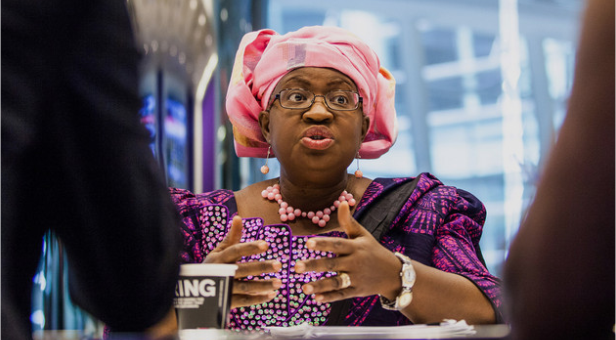Earlier this week, several media outlets across Nigeria reported that former finance minister of Nigeria, Dr. Ngozi Okonjo-Iweala, has been ordered by a federal high court in Lagos to provide information on the whereabouts of 30 trillion naira. This sum represents some of the income accruable to the federal government during the last four years of former president Goodluck Jonathan‘s administration.
Dr. Okonjo-Iweala has however denied the allegations, saying through her media representatives that she was never served any court papers or ordered to appear in court. She has instructed her lawyers to take steps to set aside any possible judgement, as it affects her reputation. In a statement issued by her media adviser Paul C Nwabuikwu, the former minister said that she only learned of the allegations in the newspapers and had no idea about it:
“Dr. Okonjo-Iweala hastens to state that she was never served with any court processes in relation to the said matter. She has not read the judgment and would therefore defer any comments on the matter,” said the statement issued on her behalf.
Dr. Okonjo-Iweala served as finance minister during Goodluck Jonathan’s administration. A graduate of Harvard University, she had a first stint as Nigeria’s minister of finance between 2003-2006 in the administration of President Olusegun Obasanjo, during which she was hailed for successfully negotiating a deal with the Paris Club, in which Nigeria paid a lump portion of its debt and its creditors wrote off the rest.
In 2011, Dr. Okonjo-Iweala had another chance to serve as Nigeria’s finance minister. Unfortunately, her second stint in government ended with her fighting to keep afloat a reputation sinking under the weight of accusations that she was involved in underhand dealing or looking the other way while large-scale corruption went on unchecked on her watch. When she left office in 2015 at the end of President Jonathan’s administration, Nigeria’s combined domestic and external debt had grown to an excess of $40 billion, despite record earnings from crude oil – an ironic twist from the debt reduction at the end of her first term.
Then, early in 2015, a former governor of Nigeria’s Central Bank, Professor Charles Soludo, accused Dr. Okonjo-Iweala of grossly mismanaging the nation’s economy, and in the process frittering away the sum of N30 trillion through misappropriated subsidy payments and dubious custom waivers, among other questionable practices. Soludo challenged her to a debate to produce details about how the economy was being run.
Dr. Okonjo-Iweala’s supporters are confident all the allegations against her amount to a mere witch hunt and a smear campaign, especially by the current administration. They point out that not one of those accusations have been substantiated with any hard evidence, describing as laughable the idea that the sum of N30 trillion – an amount several times the annual budget of Nigeria – could have been stolen without the country grinding to a halt.
New information also reveals that the suit instituted by the Socio-Economic Rights and Accountability Project (SERAP) was deposited in court in February 2015, but was not served until July 2015 at which point Dr. Okonjo-Iweala had ceased to be under the employment of the Nigerian government; thus she could not be ordered to produce official documents under Nigeria’s Freedom of Information Act.










